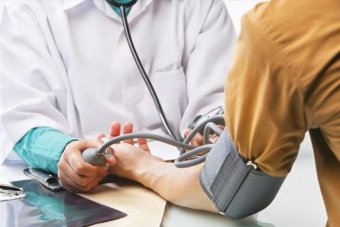
More than 1 million Australians at high risk of a heart attack or stroke are not being prescribed lifesaving medications, a new study has found.
Australian National University researcher Professor Emily Banks reviewed Australians aged 45 to 74 who were at high risk of a heart attack for the study.
“Tens of thousands of Australian lives could be saved if people aged 45 and older had a risk assessment, and if those at high risk took a mixture of blood pressure-lowering and cholesterol-lowering medications,” she said.
The study, published in the Medical Journal of Australia, was the first to quantify the risk of cardiovascular disease in Australia.
“Twenty per cent of the population aged 45 to 74, or 1.4 million Australians, had a high risk of heart attack or stroke in the next five years,” Professor Banks said.
Cardiovascular disease is the leading cause of death in Australia.
Dr Clara Chow from the George Institute for Global Health said a paradigm change was needed to ensure patients at high risk of cardiovascular disease were prescribed medications.
In an editorial in the Medical Journal of Australia, she said there was a gap between the evidence, which showed a benefit for prescribing a mixture of blood pressure-lowering and cholesterol-lowering medications, and what was happening in practice.
“We still seem disappointingly distant from getting it right with disease prevention in Australia,” Dr Chow wrote.
‘Wake-up call for Australians’
Australia’s leading heart health group, the Heart Foundation, said the study’s findings were a “wake-up call” for the community and doctors.
The Heart Foundation’s Professor Gary Jennings said more than 100,000 Australians had a heart attack or stroke every year.
“Most of these are avoidable if people at risk are detected early enough and well managed,” he said.
NPS MedicineWise CEO Dr Lynn Weekes said people concerned about their risk of cardiovascular disease can find resources on the MedicineWise website.
